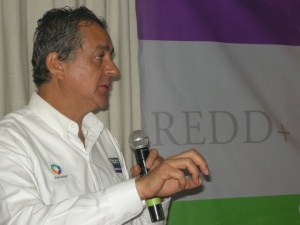A Milestone on the Road to Cancún
A recent workshop held at Oaxaca, Mexico, offered an eye-opening preview of debates that will take place during the United Nations Climate Change Conference to be held at Cancún in December.
Focusing on forest governance, decentralization and REDD+ (reducing deforestation and forest degradation in addition to enhancing carbon stocks) in Latin America and the Caribbean, the workshop addressed issues that will be at the top of the agenda for Forest Day 4, to be held alongside the UN conference.
Organized by Mexico’s National Forestry Commission (CONAFOR) and the Swiss government with scientific backstopping from the Center for International Forestry Research (CIFOR), the Oaxaca workshop was the fourth in a series of country-led initiatives undertaken in support of the United Nations Forum on Forests (UNFF). The outcomes of this event will feed into a UNFF meeting taking place in early 2011 to launch the International Year of Forests.
REDD+ clearly entails risks as well as rewards. “By building on governance successes, it could accelerate the policy and institutional changes that are needed to sustain forests,” said Elena Petkova, former director of CIFOR’s Forests and Governance Programme. “But if it is perverted by governance failures, it could end up lining the pockets of powerful elites and placing new burdens on the rural poor, without reducing carbon emissions.”
One of the “hot-button” issues surrounding REDD+ that will no doubt generate heated debate at Cancún is that of rights to forests and carbon. Some indigenous groups fear that, just as they have historically been deprived of benefits from the use of natural resources in their territories – including timber, minerals and hydrocarbons – history might repeat itself with REDD+.
Despite such hazards, REDD+ funding represents an important opportunity to promote sustainable forest management, the workshop concluded. So, it is important to learn from current arrangements that have succeeded in bringing together the separate worlds of forestry and finance.

Comments are closed.